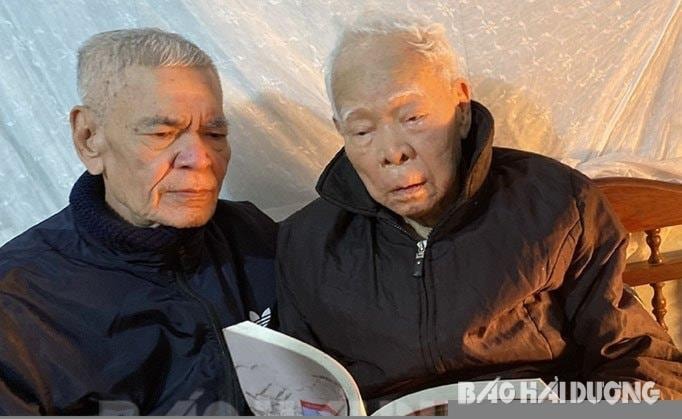
Father meets son in the trenches fighting the Americans.
Mr. Manh broke his promise to brew a good pot of tea with me, smoke a fragrant cigarette, and watch the parade celebrating the 50th anniversary of the liberation of South Vietnam and the reunification of the country. Not long ago, he passed away, following his father and his comrades.
Mr. Nguyen Minh Man and his father, Mr. Nguyen Phuc Cuong, from Cao Due village, Nhat Tan commune (now Nhat Quang commune, Gia Loc district), were among the few father-son pairs in Hai Duong who fought together against the Americans.
Mr. Nguyen Phuc Cuong, born in 1927, went through three wars: the war against France, the war against the US, and the border war in the North. He returned to his hometown with a 2/4 disability rating.
For nearly 10 years in the Viet Bac War Zone, serving in the heroic 246th Guard Regiment, based on the situation on the battlefield at that time, Mr. Cuong was assigned to directly participate in combat in the 559th Group - Truong Son Army. During his time in Viet Bac, on his leave, his children were born one after another, some of whom followed in their father's footsteps to fight the enemy, wholeheartedly dedicating themselves to the great southern front.
While he was alive, Mr. Cuong told me that, through the few letters from his family, he only knew that his eldest son, Mr. Man, had gone to the battlefield and would be "going on a long trip to the South," but he could never have imagined that he would one day meet his son under the canopy of the Truong Son forest, thick with the smell of gunpowder smoke.
Back then, Ta Le underground - the fiery gateway on Highway 20 Quyet Thang - was the most important forward outpost of the legendary Ho Chi Minh Trail, located between Quang Binh and neighboring Laos. As Deputy Political Commissar and Head of Political Affairs at Supply Depot 32, Mr. Cuong frequently inquired about the troops from Hai Duong. Once, just before the Tet Offensive of 1968, the political officer came to report:
- Deputy Political Commissar, there's Man, a new recruit from Hai Hung.
Mr. Cuong blurted out:
- Mẫn, are you from Cao Duệ village?
Looking up, Mr. Cuong saw a pale, thin, and frail new recruit standing before him. The soldier stammered:
- Hello, sir!
That's how father and son met in the Trường Sơn mountain range.
When he was alive, Mr. Man told me: Thanks to the priority given by the military base, he and his son were allowed to sleep together once a week to talk about their homeland, their village, their family, and the battles...
From Supply Depot 32, in 1969, Mr. Cuong was transferred to Supply Depot 35, while Mr. Man went to study military medicine at the 559 Command. Father and son parted ways from then on.
As the war against the US drew to a close, veteran soldier Nguyen Phuc Cuong returned to the North, working in Military Region 3. During 1978-1979, he and his comrades in an artillery regiment fought against Chinese forces throughout the Tien Yen and Ba Che areas ( Quang Ninh province ). With the northern border peaceful, Mr. Cuong transferred to the judicial branch of the Quang Ninh Special Zone until his retirement.
It wasn't until 1982, when Mr. Cuong retired and his son was discharged from the army, that they met again.
Later, upon returning home, Mr. Man still recited these verses: "Once, father went to fight the French / I was a child, running after him / Now, with graying hair beneath his floppy hat / Father meets son in the trenches fighting the Americans / Deep affection and loyalty, father calls son 'comrade' / Then smiles as he listens to stories of our homeland... Father and son laugh together when the shadow of the American enemy / Must bow its head in respect for two generations of father and son."
He didn't recognize his father.
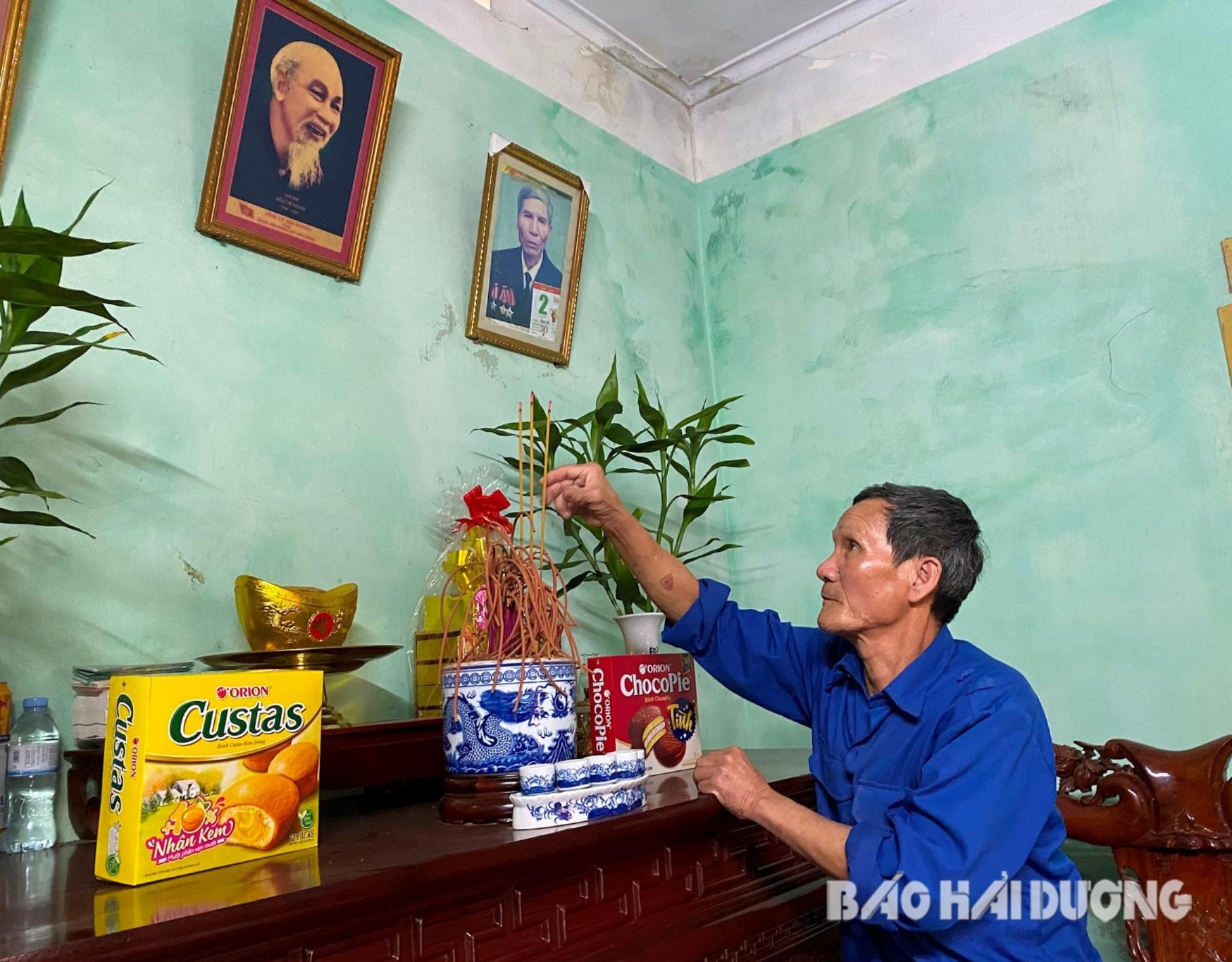
When his father, Mr. Nguyen Van Nhuong, joined the army, Mr. Nguyen Minh Nhung was still a child.
Back then, news about the battles reached Dich Son village, Hiep Hoa (Kinh Mon) infrequently. When his father joined the army, news at home gradually diminished and then stopped completely. Everyone thought Mr. Nhuong had been killed in action, and because of this, Mr. Nhung was repeatedly refused entry into the army by the commune.
In his imagination, Nhung always pictured his father as a brave soldier, clad in parachute fabric, carrying a rifle through the pouring rain, charging into battle before finally lying down on the grass with a smile. Therefore, in the story under the banyan tree at the edge of the village, young Nhung, like his friends, was convinced that one day he would join the army.
It wasn't until 1974, at the age of 17, that Mr. Nhung was able to fulfill his wish. At that time, he only knew that his father had joined the army, but he didn't know which battlefield he was in or whether he was still alive or had been killed in action. After three months of training in Ben Tam (Chi Linh), Mr. Nhung returned home for Tet (Lunar New Year), then on the 7th day of the first lunar month, he returned to his unit and walked to Tien Trung train station. The group traveled directly to Thanh Hoa, then transferred to a car to cross the Western Truong Son Mountains of Laos before entering the Western region to fight, serving in Company 2, Battalion 1, Regiment 207, Division 8, Military Region 8.
Mr. Nhung recounted that during his time on the battlefield, his unit was stationed near Saigon, so the South Vietnamese army launched fierce attacks. There were battles where the enemy fought for hours on end, unable to move, forced to lie prone under the relentless artillery fire overhead. During those times, he always longed for the day of liberation, whether alive or dead, and never even considered the possibility of reuniting with his father.
On April 30, 1975, even though they were close to Saigon, he and his comrades didn't yet know it had been liberated. They were all still on orders to man checkpoints along Highway 4. Only when they saw people pouring into the streets cheering did they realize Saigon had been liberated. At that moment, they all embraced each other in joy, knowing that the day they would return to their mothers was very near.
One afternoon in Lap Vo (Dong Thap), a unit liaison officer, accompanied by a middle-aged man, called Mr. Nhung to meet them. The liaison officer asked Mr. Nhung: "Do you know who this is?"
"I was young when my father joined the army, so my memory is quite hazy. I honestly didn't think it was my father; I just thought he was a fellow villager," Mr. Nhung recounted.
When the contact person said it was his father, Mr. Nhung froze, speechless, partly because he thought his father had passed away, and partly because he believed that even if his father were still alive, there would be no situation for them to meet in this land that was both a battlefield and a war zone.
The meeting between Mr. Nhung and his father was brief, and they parted ways in the afternoon. After that, Mr. Nhung visited Mr. Nhuong in Long An a few more times. Later, Mr. Nhuong worked at a re-education camp until his discharge from the army, after which he returned to his hometown.
As for Mr. Nhung, after liberation, he continued to protect the southwestern border, advanced into Cambodia to fight Pol Pot and liberate the neighboring country, and was discharged from the army in 1981.
Now that his father, who was also his comrade, has passed away, Mr. Nhung has become a true farmer. Although life is hard, Mr. Nhung always believes he is still luckier than many of his comrades who, after more than half a century, could not return home.
TIEN HUYSource: https://baohaiduong.vn/nhung-cap-bo-con-cung-danh-my-409743.html













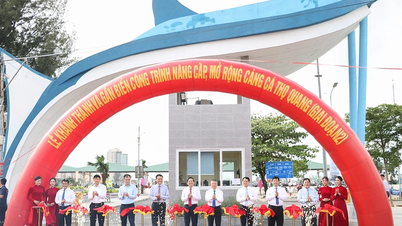





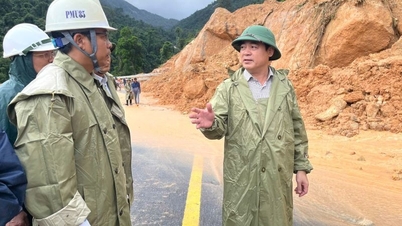

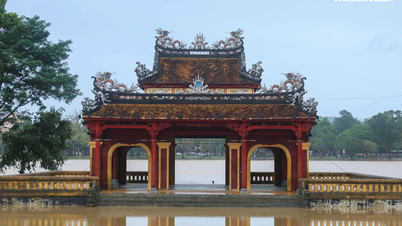
















































































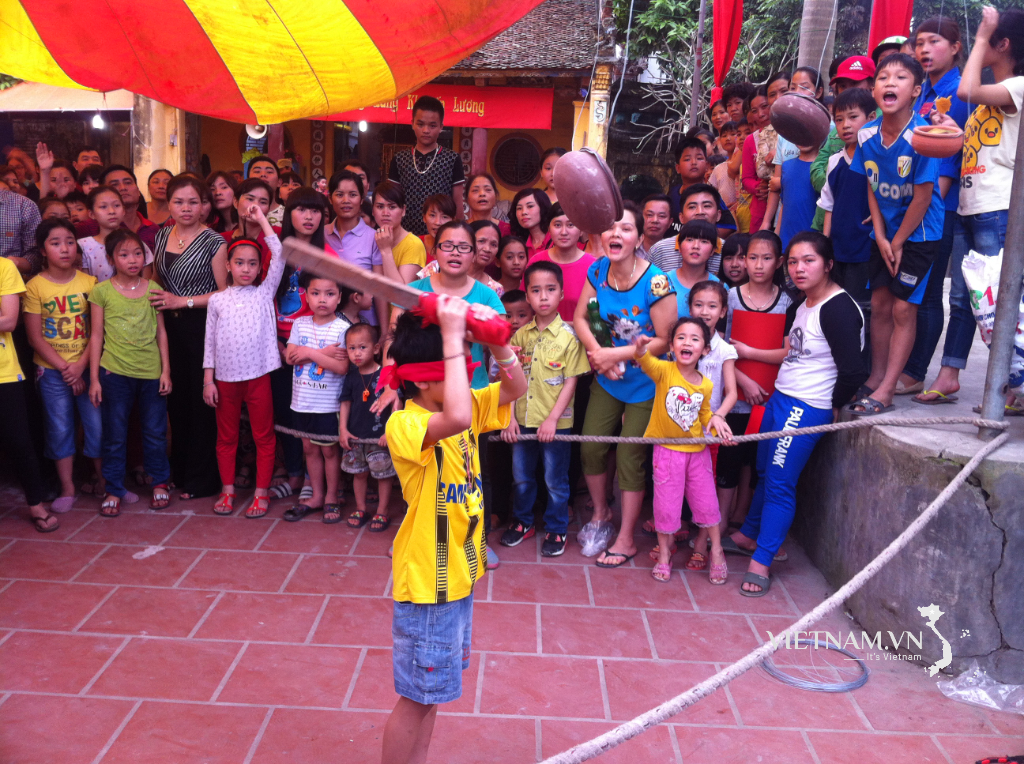

Comment (0)